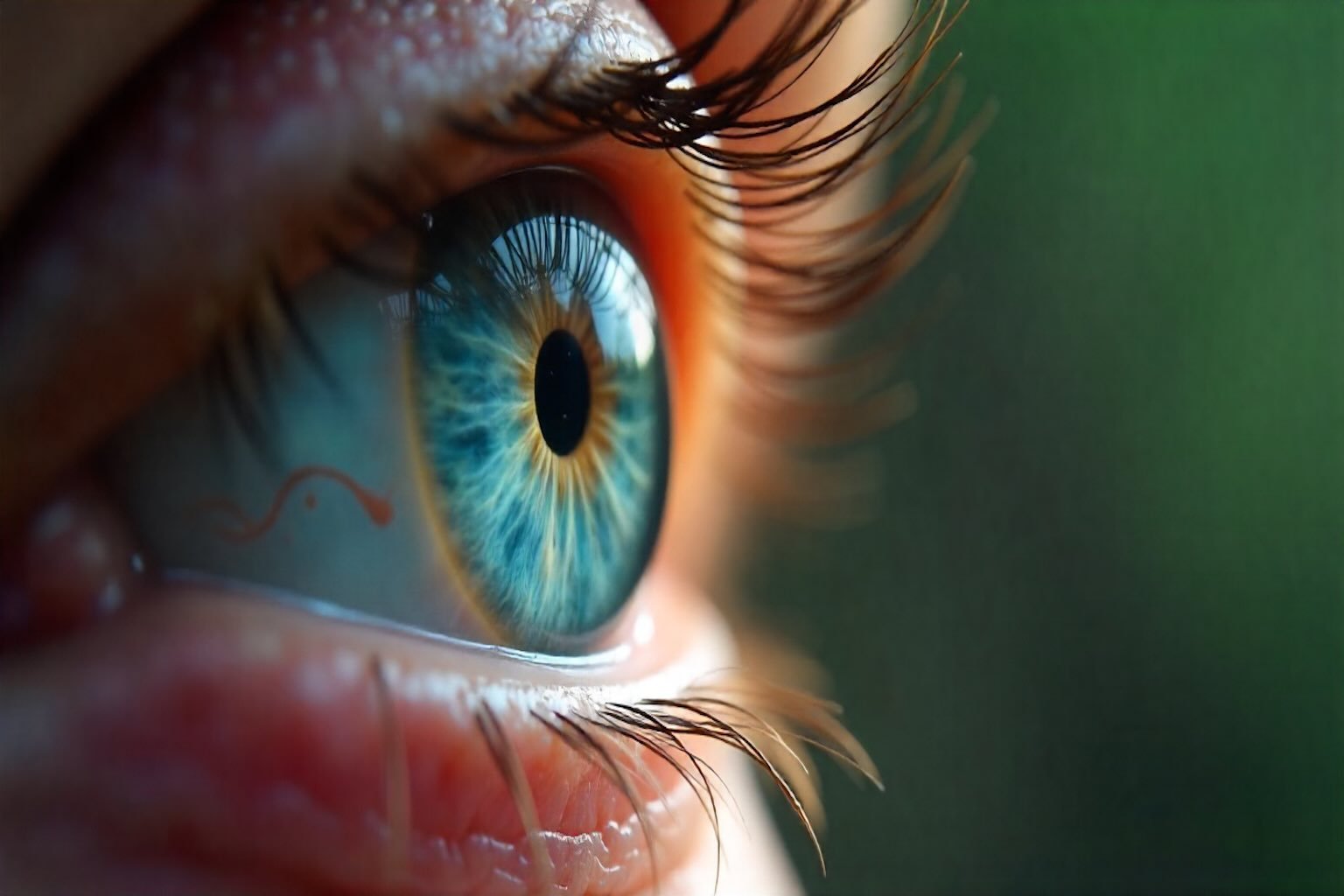Your eyes do more than just let you see colors, shapes, and faces. They can also give clues about your brain health. In fact, new research shows that changes in the eyes may predict dementia up to 12 years before diagnosis. This discovery could change how doctors detect the disease early. Let’s break down what the study found and why your eyes are so closely connected to memory.
The Study That Changed Everything
Researchers in England tracked 8,623 healthy adults over many years. At the start, participants took a simple visual test:
-
They watched a screen filled with moving dots.
-
A triangle appeared randomly.
-
Their task was to press a button as soon as they saw the triangle.
The results were striking. People who later developed dementia reacted more slowly to the triangle compared to those who stayed healthy. This means their eyes showed signs of brain changes long before memory loss appeared.
Why Eyes Can Predict Dementia
The saying “the eyes are the window to the soul” may be true in a scientific sense. In Alzheimer’s disease, some of the first brain regions damaged are those linked to vision. That’s why changes in eyesight often show up earlier than memory problems.
By testing the eyes, doctors may one day detect dementia before it becomes severe—giving patients a better chance to prepare and get treatment sooner.
Early Warning Signs in the Eyes
Some vision changes may appear in the early stages of dementia:
-
Trouble seeing the edges or outlines of objects.
-
Difficulty distinguishing certain colors, especially blue and green.
-
Struggles to control eye movements, making it harder to ignore distractions.
These issues don’t just affect daily life—they can increase the risk of accidents, especially while driving. People with dementia may get distracted more easily, putting themselves and others in danger.
How Dementia Affects Recognizing Faces
Eye movements also play a role in recognizing people. Normally, when we meet someone, our eyes follow a pattern: eyes → nose → mouth. This scanning helps the brain “record” a face for memory.
People with dementia don’t always scan faces this way. As a result, they may fail to recognize familiar people later. Doctors often notice these unusual eye patterns during checkups, as patients may appear “lost” or fail to scan their surroundings normally.
Can Moving Your Eyes Improve Memory?
Not all news is negative. Some studies suggest that eye movements can strengthen memory:
-
Reading books or watching TV keeps the eyes active, which may stimulate the brain.
-
Quick side-to-side eye movements (about twice per second) have been shown to boost autobiographical memory—our ability to recall personal life events.
-
Interestingly, research hints that this effect may be stronger in right-handed people than in left-handed ones, though the reason is still unclear.
The Technology Challenge
If the eyes are so revealing, why don’t doctors use them more often in dementia tests? The answer is simple: technology costs. Eye-tracking machines are expensive and require trained specialists to operate.
However, scientists believe that as eye-tracking technology becomes cheaper and more accessible, it could become one of the most effective tools for detecting Alzheimer’s disease early.
Your eyes are more than just a way to see the world. They may hold vital clues about the health of your brain, even years before memory loss begins. Researchers now know that eye changes can predict dementia up to 12 years in advance.
Taking care of your eyes—and paying attention to how they work—could one day help protect your memory. The connection between sight and brain health is stronger than most of us ever imagined.
